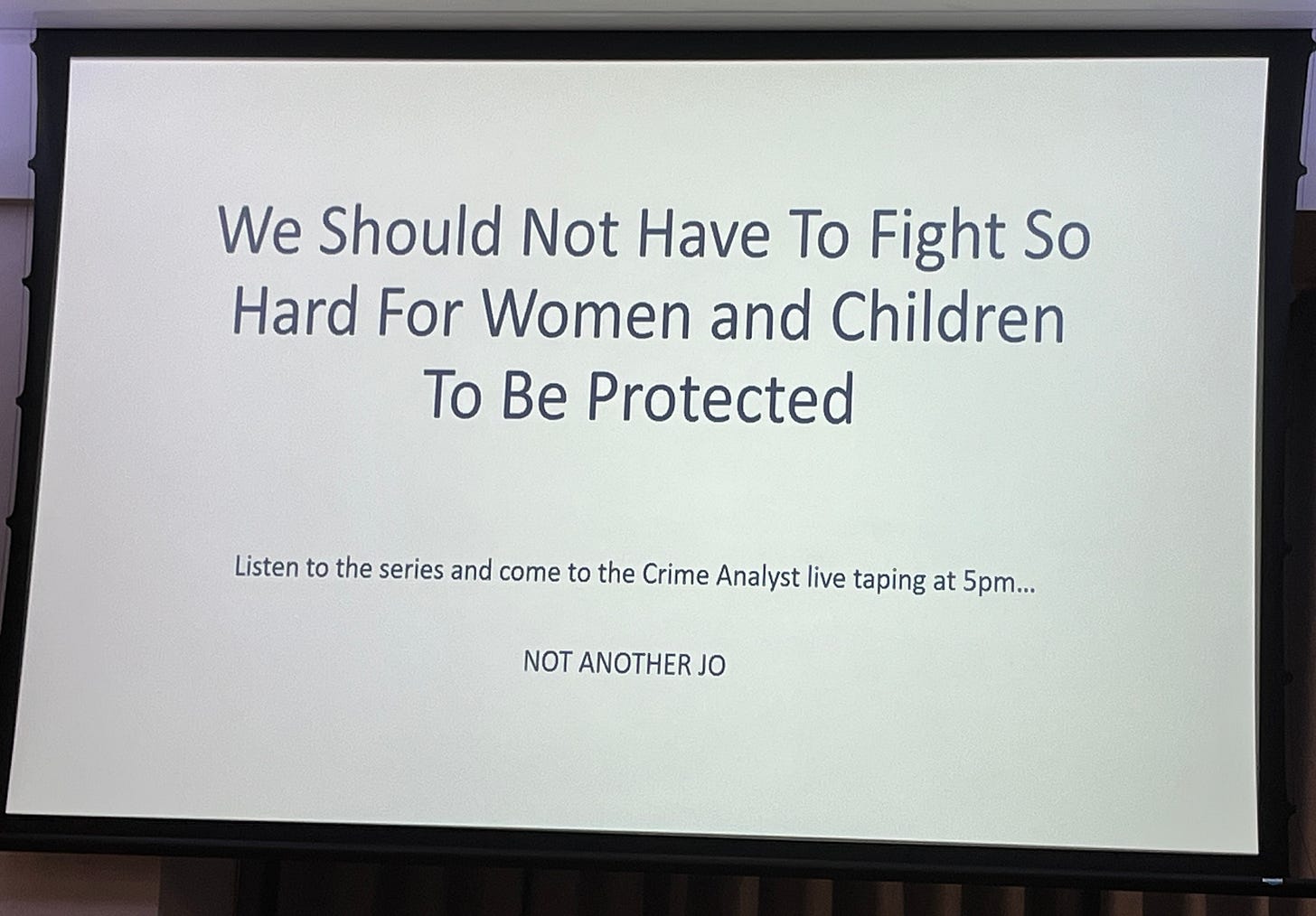Is true crime bad for us?
The genre is often condemned for being salacious and degrading. But last weekend's CrimeCon in London revealed the positive value of non-fiction crime
Every now and then there will be a true-crime scare.
Journalists and academics will mount their high horses and blast the popular interest in non-fiction books, TV and podcasts about crime.
Headlines such as The human cost of binge-watching true crime series, Why are we obsessed with true crime? Is the obsession with true crime turning nasty? and We must kill off our true crime obsession bombard us.
What they are often attacking is the indefensible – TV productions that disregard the feelings of a victim’s family, the glorification of killers, the prurient depiction of victims. This is what I think of as the Chamber of Horrors approach to real-life cases.
In my view, however, such squalid output is the exception. I’ve read some ugly true-crime books myself and know well how offensive merchants of this stuff can be.
London’s CrimeCon
At CrimeCon in London last weekend I saw what serious, conscientious true-crime producers offer. Thought-provoking and empathetic insights into crime, how and why it occurs, what we can sometimes do about it.
A genuinely moving panel concerned the case of Joanna Simpson, who was murdered by her BA pilot husband Robert Brown in front of their children in 2010.
Speaking was Joanna’s mother, Diana Parkes, and her best friend, Hetti Barkworth-Nanton.
By my estimation there were about 200 people, mostly women, crammed into the conference room to hear these two speak about their remarkable campaign to stop Brown’s automatic release from prison, having served 13 of his 26-year sentence.
Together with Laura Richards, whose Crime Analyst podcast did so much to promote their campaign, they described their battle with authorities to ensure he remained locked up.
It was hard not to agree with their description of his trial as a ‘miscarriage of justice’ in the first place. He was – mind-boggingly – convicted of manslaughter by reason of diminished responsibility rather than murder.
This was despite the fact that he had already dug a grave for her and had clearly planned the killing, which he committed with a hammer within earshot of the couple’s two children, just a week before their divorce would be finalised.
Jo’s mother, now in her mid-80s, and Hetti gave a remarkable, inspirational talk that highlighted appalling shortcomings in the justice system. Not least among their dismay was the way in which the case had been turned into a trial of victim Joanna.
Coercive control, entrapment
The audience listened intently as the warning signs of a relationship that could turn violent were outlined – coercive control, entrapment in a deteriorating marriage, manipulation, threats.
A powerful case was made for the rights of victims and their children, family and friends.
A clarion call was made at the end of the session: We Should Not Have to Fight So Hard for Women and Children to Be Protected.
I had read about this case and remember being bemused by the verdict. But sitting in on this 45 minute session left me mute in admiration for those fighting this campaign and shock at the cruelty and unfairness of the system.
There was nothing crass or exploitative about this or any other panel that I saw at this year’s CrimeCon. The sessions were sober and thought-provoking, the atmosphere positive, and overall the mood was constructive, particularly in featuring event partners such as Inside Justice, a charity investigating claims of miscarriages of justice.
Laura Richards, the podcaster and a former New Scotland Yard criminal behavioural analyst, made a strong point when she said, and I paraphrase, that we have to bear witness if we are going to make changes highlighted by cases such as Joanna Simpson’s.
Not all true crime is focused on such campaigning, of course. But the quality books, programmes and podcasts out there give a chance to confront and gain some understanding and insight into the dark side in society.
Details of London CrimeCon 2025





Thank you for this! I will definitely plan to attend future ones.
Although it is a shame that there is still more of an emphasis on the salaciousness of true crime - specifically the most brutal murders; whilst programs on miscarriages of justice have fallen out of vogue as they tend to highlight failures in the judicial system (bent cops, lawyers and judges) rather than the successes of the same system that a lot of this true crime porn extolls.